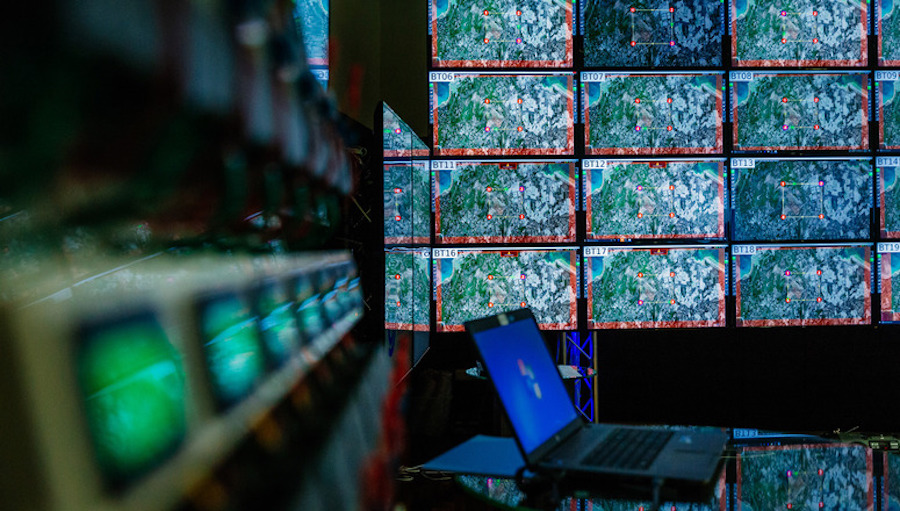
Getting ever closer to NATO, LCU is again the winner of a new project – WITNESS (Wide InTegration of sensor Networks to Enable Smart Surveillance) – dedicated to facilitating the security forces. International Institute of Management IMI-Nova, Universitatea de Stat din Tiraspol (Moldavia) and Kingston University (UK) are partner universities to the project, which is part of the Science for Peace and Security Programme.
WITNESS is devoted to designing an innovative framework for situational awareness and decision making, to improve the effectiveness of security forces in preventing and dealing with an urban attack. The pervasive and scalable nature of this framework, based on a sensor data fusion engine and scene understanding models, will facilitate to leverage the information gathered by multiple sensors (e.g. fixed visible/IR cameras, microphones, UAV payloads) and devices (iVest of policeman and connected police vehicles), therefore obviating the need for manual surveillance and processing of the sensor streams (e.g., watching hundreds of cameras).
The overall strategy of the project work plan is built around the following best practices:
- Scenario-driven: WITNESS will foresee end-user involvement in order to define the scenarios, elicit and analyse requirements, but also plan a realistic demonstration and assess the project results. The WITNESS work plan acknowledges the importance of receiving expert feedback in order to improve and fine-tune the WITNESS framework.
- Architecture-oriented: WITNESS will be boosted by architectural blueprints defining the structuring principles of WITNESS. The adoption of modular architectures will facilitate the understanding, the development and the integration of WITNESS.
- Iterative lifecycle: The work plan is incremental in terms of the main technical deliverables of the project (such as systems, sub-systems and algorithms). These deliverables, along with the integrated WITNESS framework will be released in at least two iterations in order to enable early assessment, as well as early risk reduction. The WITNESS iterative approach will alleviate the project from the risks of conventional waterfall approaches.
- Evolutionary: The incremental nature of WITNESS work plan should ensure that successive versions of the project deliverables constitute improved and evolutionary versions of the early/previous ones. The evolutionary approach will boost the principle of continuous improvement, through continually receiving and exploiting users’ feedback.

